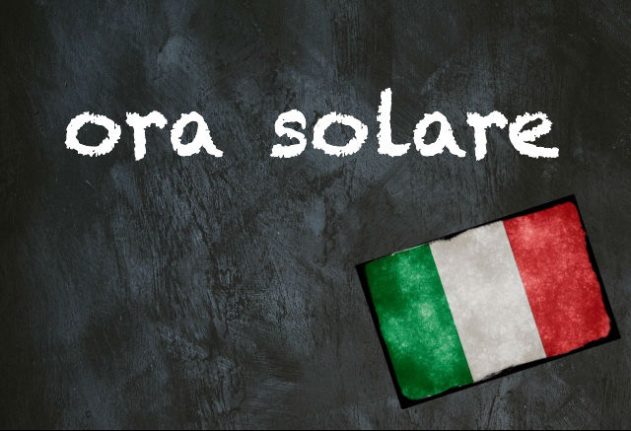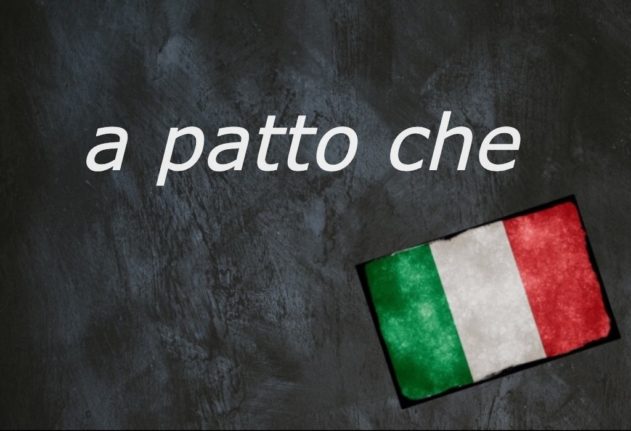If you're in Italy this weekend, you'll find yourself running on 'sun time'.
No, we're not talking about a late summer (that comes in November) – we mean Italy's ora solare: 'solar time', or what we'd call standard or winter time.
The phrase is used to differentiate from the ora legale ('legal time'), or daylight savings time, which is what Italy – along with the rest of Europe – switches to in summer.
While l'ora solare isn't true solar time, calculated by the movement of the sun in the sky, it's closer to it than l'ora legale, when we're deliberately out of sync by an hour in order to give ourselves an extra hour of daylight in the evening.
Typically l'ora legale lasts for seven months between late March and late October, while l'ora solare is in place throughout the winter.
The clocks go forward (avanti) in spring, while in autumn they go backwards (indietro).
This year the switch falls on Sunday, October 25th, with clocks going back at 3am and giving us an extra hour in bed.
Fra poco si passa all'ora solare: dovremo portare le lancette un’ora indietro.
Soon we'll go back to winter time: we have to put our clocks back an hour.
Note that ora is the word for both 'time' and 'hour' in Italian: you can usually tell the difference by whether it's used with the definite article (l'ora, 'the time') or the indefinite (un'ora, 'an hour').
Potentially l'ora legale could be on its way out: the EU has said that each member state is free to get rid of the clock changes and stick to either winter or summer time all year long.
Italy hasn't yet decided which ora it will pick, or indeed whether it will keep them both. So make the most of that extra hour of sleep while you can.

Do you have a favourite Italian word you'd like us to feature? If so, please email us with your suggestion.



 Please whitelist us to continue reading.
Please whitelist us to continue reading.
Member comments